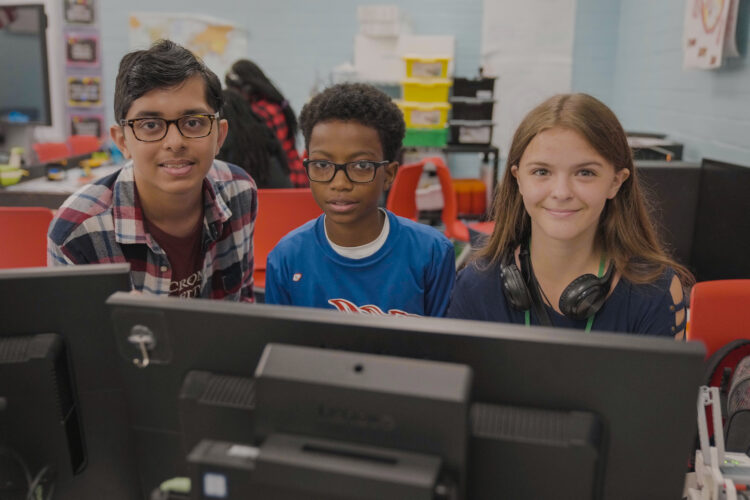August 21, 2024 – For many parents, a student’s transition to middle school can be a source of uncertainty, questions, and even anxiety. But with the right tools and strategies, educators say a child’s move from elementary to middle school doesn’t have to be intimidating.
“Information is power for parents,” says GRASP Academy Principal Annessia Powell. “Parents have so much power, and they set the tone.”
So how can parents best support students in their journey? We spent time talking to district educators – including two principals – and got their top 16 tips on how parents can help facilitate a smoother transition to the sixth grade and beyond.
Is the transition from elementary to middle school hard?
Most associate middle school with a time of great academic and emotional change, and rightly so.
Middle schoolers face tougher academic standards
Highlands Middle School principal Leon Mungin says much of that change stems from students shouldering more rigorous academic requirements and responsibilities.
“It’s a time of more independence, becoming a young adult,” shares Mungin. “The training wheels are taken off, and they have to start making decisions for themselves.”
Students adjusting to new social and relational dynamics
What’s more, middle school students are also navigating new social and relational dynamics. Duval County Public Schools Middle School Region superintendent Dr. Denise Hall says a middle student’s attempts to find their “friend group” can often result in behavioral changes.
“An elementary kid’s focus is on pleasing adults. But when they get to middle school, they want to impress and gain the favor of their peers,” shares Dr. Hall.
Top 16 tips to help your child transition to middle school
It’s for these reasons, and many more, educators say parents must take an active role in their students’ middle school experience. Below, we’re breaking down their top 16 tips, and exploring how parents can best partner with their children.
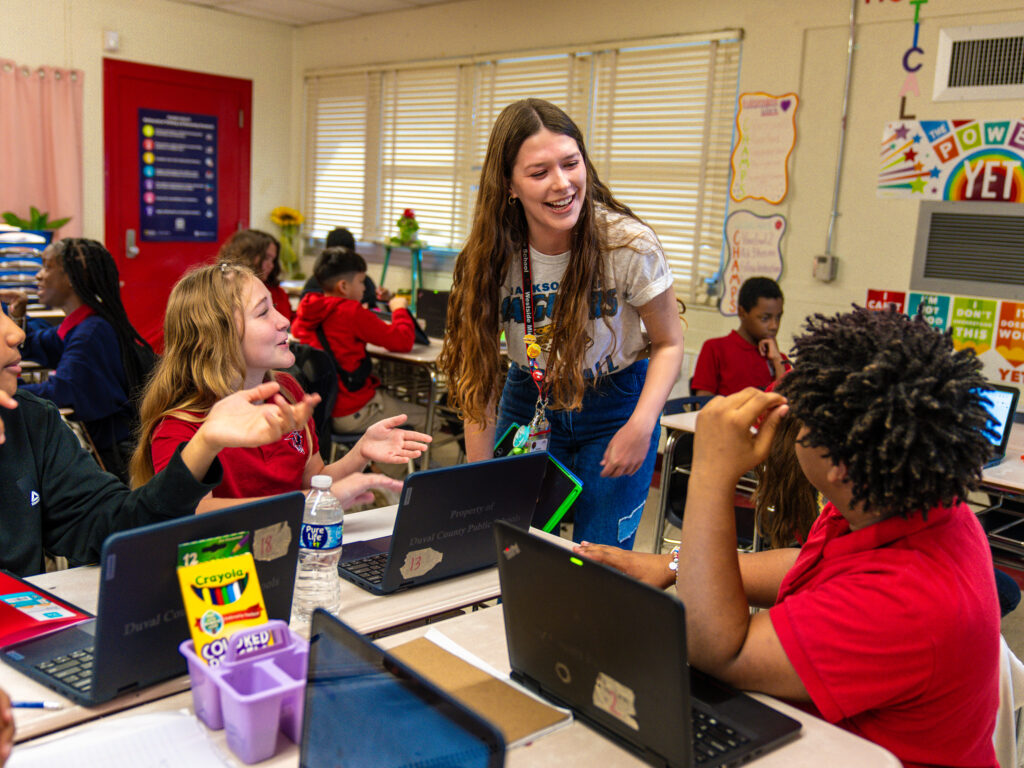
Engage with Your Child’s Middle School
Parent involvement is paramount to a new middle school student’s success, and can be accomplished by implementing some simple strategies:
#1 – Visit your child’s middle school
According to Powell, parents should never shy away from visiting their child’s school. Leaders recommend calling your child’s school first to pre-arrange visits with teachers or tour the campus.
“Not all of us can attend a parent night or an open house. Sometimes our schedules just don’t work, and that’s okay,” says Principal Powell. “What you can do is drive to the school (and) get an idea of where your child is going.”
Mungin adds that parents should prioritize visiting their child’s school year-round.
“The biggest thing parents can do for a child is to be present on campus whenever they can,” he says.
#2 – Call and email with questions
As questions arise – whether they’re about school rules, dress code, or more – parents are urged to be proactive. Getting answers is often as simple as making a call to the school’s front office or emailing a staff member, teacher, or principal.
#3 – Set up meetings with teachers
Mungin further encourages parents to have meetings with teachers – even if nothing is wrong.
“Sitting in front of the teacher and letting them know you’re involved in your kid’s life…that means the world,” he says. “Having a mutual relationship will open the doors to more communication between the educator and teacher.”
#4 – Become involved with parent groups
When it comes to parent involvement, Mungin advises parents to go beyond attending school-wide activities. He suggests joining advocacy groups and organizations such as the School Advisory Council (SAC) or PTA.
“Parents need to participate like they did in elementary school,” he urges. “They need you to be there to guide them.”
Help Your Middle School Student Get Organized
This season isn’t just about transitioning to a new school. Students are entering a new paradigm of multiple teachers and multiple classes. With these changes, students will need to have a higher level of organization.
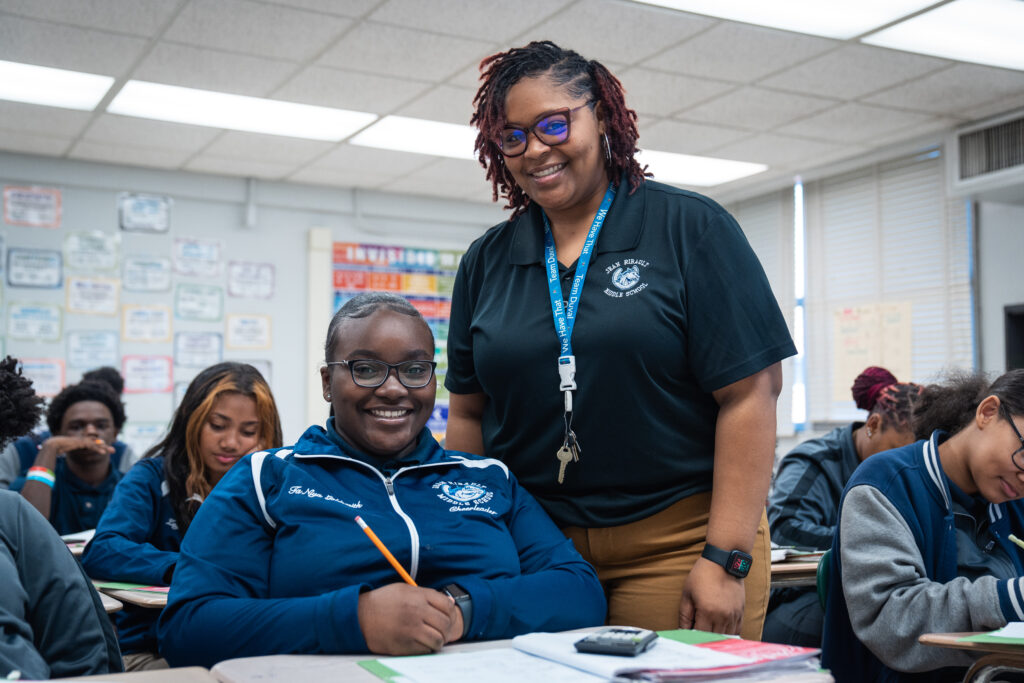
#5 – Come up with a system
Take time to come up with a system that works best for your child, such as:
- Using a calendar or planner to organize dates and deadlines
- Keeping separate folders or binders for each subject or for A and B days
- Making to-do-lists
- Using a whiteboard or bulletin board
- Coming up with a schedule to manage time
- Taking advantage of tools like online organizational apps
Above all, Principal Powell emphasizes the importance of setting rituals, routines, and systems.
“Walk them through the day. Look at their schedule,” she advises. “(For example), ‘When you get home, this is where your backpack goes. Let’s check Teams or let’s check Focus.’ It’s about routines and rituals and knowing what to expect.”
#6 – Get a Linked Parent account to access grades and assignments
One of the best ways a parent can truly partner with their middle school student is by getting a Linked Parent account. Having a Linked Parent Account gives parents instant access to:
- Your child’s grades
- Transportation registration
- School Choice applications
- Emergency Communications
- …and much more
#7 – Find out where your teachers post their assignments
Whether it’s in Focus, TEAMS, or another online platform, it’s critical both parents and students know where teachers are posting their assignments. Families should also have a clear expectation of when assignments will be posted regularly.
#8 – Check your child’s backpack
Simple as it sounds, Powell says parents should make it a habit to check their child’s backpack for important communications, permission slips, and assignments.
“I know that sounds crazy,” says Powell. But she says students are prone to stuff papers in their bags or even lose them. Therefore, having an extra set of eyes helps maintain organization.
Support Your Middle School Student Academically
Parents play an important role in helping students adjust to the increased rigors of middle school.
#9 – Encourage daily reading
Research suggests 20 minutes of daily reading will have a significant impact on a student’s trajectory, and middle school students are no exception. As a former high school assistant principal, Mungin understands the importance of literacy at this stage.
“Not reading is the biggest barrier for middle school kids,” he says. “If they don’t get a Level 3 in Reading (on the Florida Assessment of Student Thinking, or FAST), they’re already behind.”
#10 – Take advantage of online learning tools
Mungin goes on to say that students can always brush up on their skills by taking advantage of online learning tools – especially on days they don’t have as much homework to do.
“If the student says they don’t have anything to do, they can always get on one of our Blending Learning Platforms,” he advises.
#11 – Discuss your child’s IEP or 504
If your child has an Individualized Education Plan (IEP) or a 504, Principal Powell suggests setting up a meeting with school staff to talk it over.
“You don’t have to wait until the due date,” Powell advises. “You can say, ‘I would like to set up an appointment just to review my child’s IEP just to make sure we’re all on the same page.’ I think it really helps not only the counselor and the teachers, but it also helps the parent.”
Social and Emotional Support for Middle School Students
Equally important to a middle school’s academic development is their social and emotional well-being.
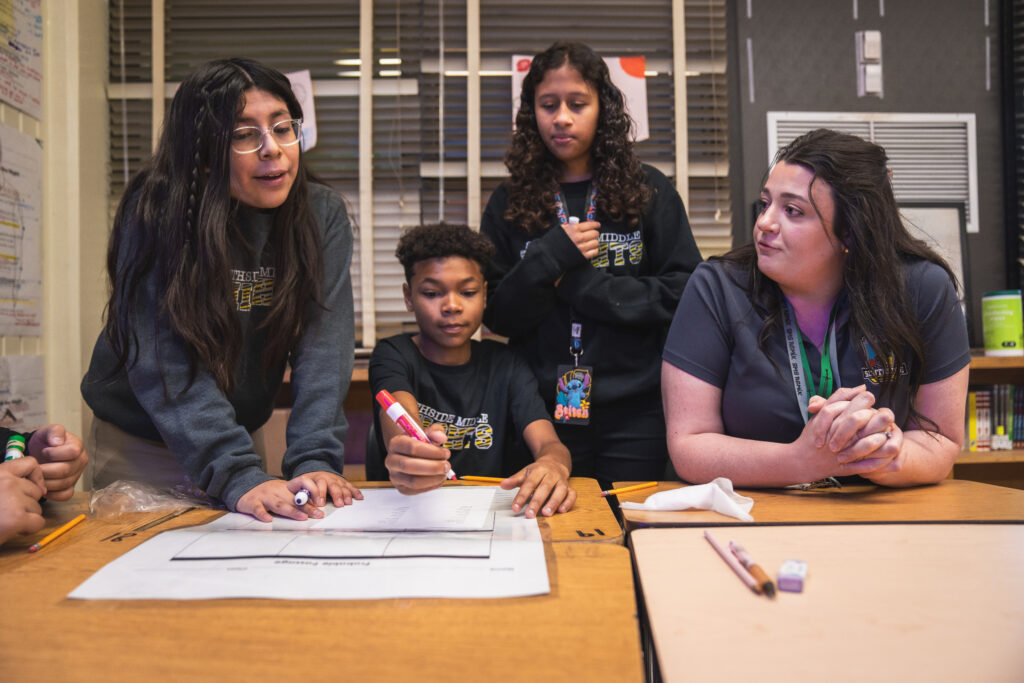
#12 – Keep open communication
As students transition to middle school, parents must engage in regular communication with their students – whether that’s asking about their day, or discovering who they’re hanging out with.
“Have conversations with them. Reassure them that they can talk to you about anything. Listen to what they’re saying,” Mungin says. “Don’t judge them based on the way they seem at home, versus the way they’re acting in school.”
Powell advises that parents need to pack plenty of patience, remembering their students are still developing mentally and emotionally.
“It’s that frontal lobe, frontal cortex, that emotional piece – they’re very emotional people,” she explains. “If it seems like they’re arguing or backtalking, it’s just their way of problem-solving, thinking it through, or creating their own opinions.”
#13 – School counselors and Hazel Health
All Duval County Public Schools students – including those in middle school – have access to a school counselor. This means students can seek non-clinical services such as grief support, coping skills, and more.
Students can additionally get free mental health counseling through Full Service Schools or Hazel Health. Parents or guardians will need to provide consent and fill out the appropriate forms before students can participate.
#14 – Address parent health
In this transition from elementary to middle school, parents must also pay attention to their own health.
“As adult anxiety goes up, child anxiety goes up,” shares Powell. “My big tip – really evaluate what you need to help your anxiety over middle school. That will (also) help your child.”
Tips for Students as They Transition to Middle School
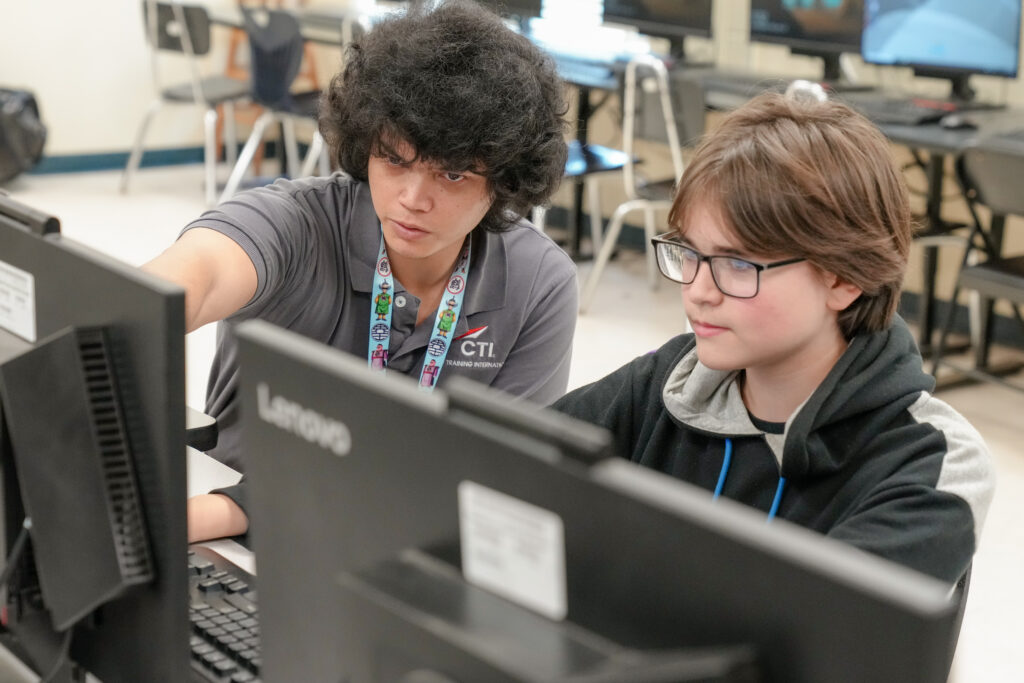
Finally, we asked our experts for their biggest pieces of advice for students entering the middle school transition.
#15 – Get involved
Sports, bands, clubs, and more. Mungin says a major key to success in middle school is participation.
“The kids who participate in activities are more successful because you have automatic support,” he says. “You’re building bonds and relationships with people, and you’re motivated to keep your grades up.”
#16 – Be yourself
Rather than feeling pressured to fit in with different groups, Mungin says students should stay true to who they are.
“You will quickly find a friend by being yourself,” advises Mungin. “It’s going to be different, especially for sixth graders. Everyone’s adjusting, and it’s okay to be scared. But come in and do what’s right.”

